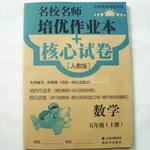阅读理解。
One end of the lamp wick (灯芯) is immersed (把......浸入......之中) in oil and the other end is not
immersed. When you light the end which is not immersed, it will burst into flame. This is because the oil
is able to rise up the lamp wick thus helping it to burn.
In the same way, if you immerse the end of a piece of chalk into a glass of water, the water will soon
climb up the chalk making it wet.
If a piece of ordinary glass tubing is heated in a gas flame until it becomes soft, it can be pull into a tube
of a very small hole. Immerse the tube into water or any other liquid which wets glass, you will find that
the liquid rises to a height of several centimeters. This is known as capillary action. The liquid rises because
there is an attractive force between the liquid and the glass. The attractive force depends on the diameter of
the tube and the type of liquid used.
1. Why can an oil lamp work?
A. Because there is oil.
B. Because there is oil climbing up the wick.
C. Because the other end is immersed.
D. Because the wet end is lighted.
2. The passage mentions all the things except _____.
A. oil
B. water
C. chalk
D. paper
3. The last sentence means that _____.
A. the thinner the diameter, the greater the attractive force
B. the diameter of the tube and the kind of the liquid decide the greatness of the force
C. the thinner the diameter, the smaller the attractive force
D. oil climbs up higher than water
4. The liquid rises up a tube because _____.
A. the tube is thin
B. the glass has an attractive force
C. the liquid tends to rise up
D. both glass and liquid act on each other
5. The passage mainly talks about _____.
A. an oil lamp B. an ordinary tubing
C. liquid climbing up things
D. capillary action

 名校名师培优作业本加核心试卷系列答案
名校名师培优作业本加核心试卷系列答案 全程金卷系列答案
全程金卷系列答案